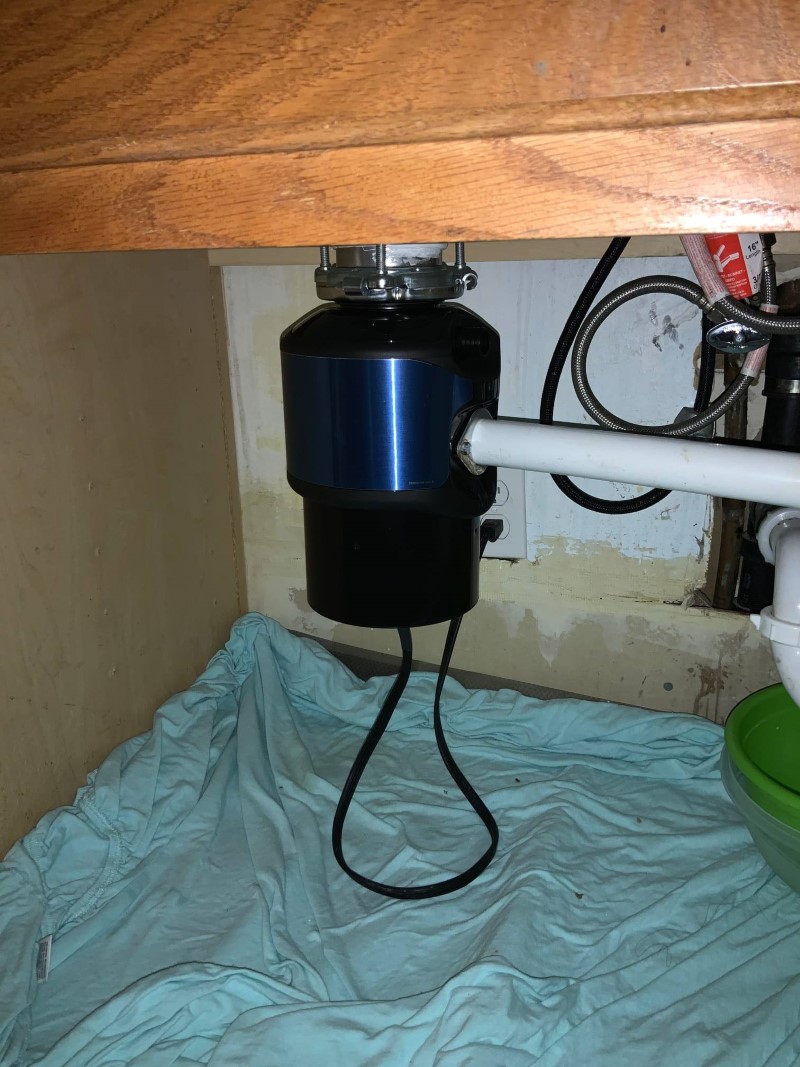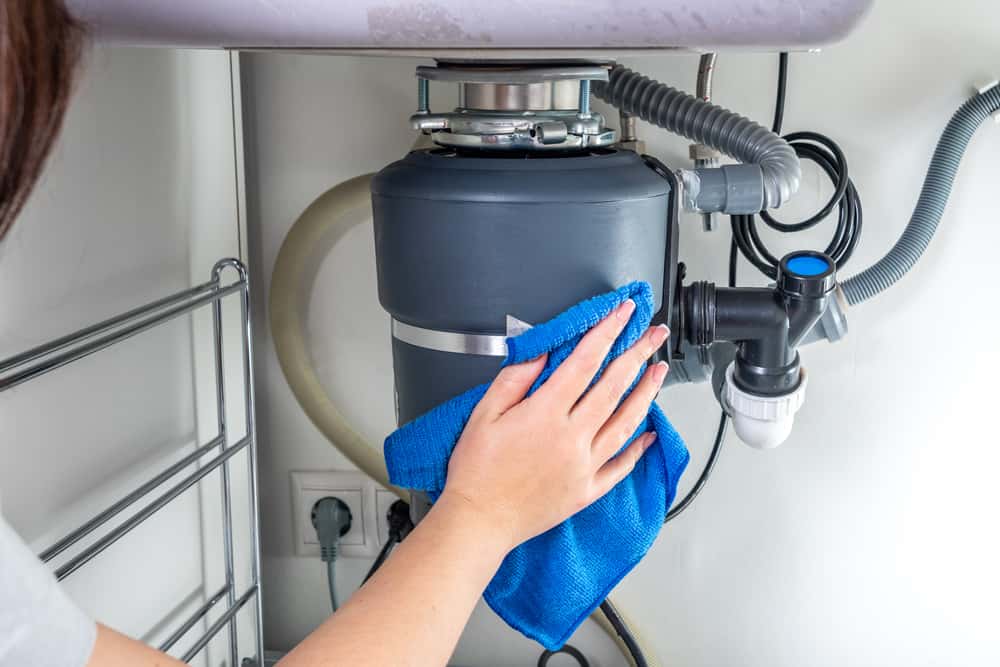Trusted Ways to Fix a Leaking Waste Disposal Unit
Trusted Ways to Fix a Leaking Waste Disposal Unit
Blog Article
What are your ideas about Tips on Fixing a Leaking Garbage Disposal?

Waste disposal unit are important kitchen area devices that help in taking care of food waste efficiently. However, a leaking garbage disposal can be a discouraging and unpleasant trouble to deal with. Luckily, lots of leakages can be dealt with conveniently with a couple of straightforward actions. In this article, we will go over just how to take care of a leaking waste disposal unit properly.
Introduction
Waste disposal unit are installed under kitchen area sinks and are created to shred food waste right into smaller sized pieces, permitting it to pass through the plumbing system quickly. While these tools are generally dependable, leaks can occur with time as a result of damage, loosened links, or damages to the device.
Step-by-Step Guide to Taking Care Of a Dripping Waste Disposal Unit
Shut off the Power
Prior to attempting any kind of fixings, make sure that the power to the garbage disposal system is switched off to prevent the risk of electrical shock.
Find the Leak
Determine the specific place of the leak and figure out the reason
Tighten up Connections
Use a wrench to tighten any kind of loose links between the disposal system and the plumbing system.
Change Seals or Gaskets
If the leak is due to used seals or gaskets, eliminate the old parts and replace them with brand-new ones.
Patching Cracks or Holes
For fractures or openings in the disposal unit, use epoxy or an appropriate patching material to seal the damaged location.
Identifying the Resource of the Leak
Prior to trying to deal with a leaking garbage disposal, it is vital to identify the source of the leak. This can normally be done through visual assessment or by carrying out easy tests.
Visual Evaluation
Evaluate the garbage disposal device carefully for any type of signs of water leak. Pay attention to locations around seals, gaskets, and link points.
Checking for Leaks
One method to check for leakages is by running water with the disposal system and checking for any noticeable indications of leakage.
Typical Causes of Leaks in Rubbish Disposals
Worn Seals and Gaskets
Seals and gaskets play an important function in avoiding water from dripping out of the garbage disposal. Gradually, these elements can wear away, causing leaks around the disposal system.
Loose Links
The links between the waste disposal unit and the pipes system can end up being loosened in time, creating water to leakage out during operation.
Fractures or Holes in the Disposal Device
Physical damages to the waste disposal unit, such as splits or openings in the housing, can likewise result in leaks.
Devices and Products Needed for Taking Care Of a Leaking Garbage Disposal
Before starting the fixing procedure, gather the essential devices and materials, including a screwdriver, flexible wrench, plumbing professional's putty, replacement seals or gaskets, and epoxy or patching product for fixing cracks or openings.
Testing the Waste Disposal Unit After Repair Service
When the repair is full, test the garbage disposal by running water through it to make certain that the leak has actually been fixed.
Preventive Maintenance Tips to Prevent Future Leakages
To avoid future leakages, it is vital to execute normal upkeep on your garbage disposal. This includes keeping it tidy, staying clear of putting non-food things or hard things down the disposal, and regularly checking for leakages or various other problems.
Verdict
In conclusion, repairing a dripping waste disposal unit is a fairly uncomplicated process that can be completed with standard devices and materials. By complying with the actions outlined in this write-up and practicing precautionary maintenance, you can maintain your waste disposal unit in good working condition and prevent expensive repair services in the future.
HERE’S HOW TO FIX YOUR GARBAGE DISPOSAL
WHAT TO DO IF SOMETHING IS STUCK IN YOUR GARBAGE DISPOSAL
If the impeller won’t turn, there’s probably something stuck in the disposal. It could be a steak bone or peach pit, although plumbers report pulling all sorts of inappropriate objects out of disposals, such as bottle caps or aluminum foil. Make sure power to the disposal is off, and look inside to see if you can see the source of the jam.
Never stick your fingers in a disposal. Pull out anything you see with tongs or pliers.
If the disposal still won’t work, it may be time to call a plumber or consider buying a new disposal. GEM Plumbing & Heating is here for all of your garbage disposal needs.
WHAT TO DO IF YOUR GARBAGE DISPOSAL DRAIN IS CLOGGED
Take everything out from underneath your sink and put a bucket or other container under your disposal to catch any water that drains out. Disconnect your disposal from the power supply. If it’s plugged into a wall outlet, unplug it. If it’s hardwired into an electrical box, go to the electrical panel and turn off the breaker for the disposal. Pour ¼ cup of baking soda into the drain, followed by ½ cup of white vinegar. Give the solution a few minutes to fizz and do its work. Look into the disposal with a flashlight to see if you can see an object that might be causing the clog. If you see it, remove it using tongs or pliers. MORE TIPS ON DEALING WITH A CLOGGED GARBAGE DISPOSAL
Never use drain cleaner in a garbage disposal. It can damage the plastic parts inside the disposal. You can also be splashed with the caustic liquid while working to clear the clog. Beware! Never stick your fingers into a garbage disposal. Trust us — not a good idea. In many instances, your dishwasher drains through your garbage disposal. This allows the disposal to grind any large food particles that may be drained out of your dishwasher. There are some jurisdictions, however, where the plumbing code prohibits such a connection. WHAT TO DO WHEN YOUR DISHWASHER DRAINS THROUGH THE DISPOSAL
Run some water in the sink so your plunger has at least a ½-inch of water to create a seal and plunge vigorously up and down several times. You may need to repeat this several times. Run hot water down the drain to clear any residue that remains.

As a passionate person who reads about Why Is , I figured sharing that short article was a great idea. So long as you liked our article plz don't forget to share it. Thank you for your time. Please visit our website back soon.
Click Here Report this page